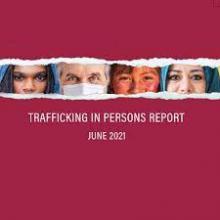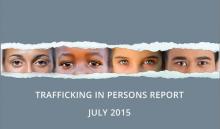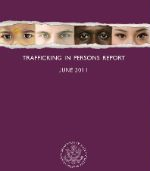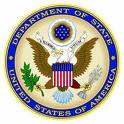U.S State Department Releases 2021 Trafficking in Persons Report (Haiti)
The U.S State Department has releaed its 2021 Trafficiking in Persons (TIP) reports. Haiti is "Tier 2" country meaning it is falling short in many areas. The economic downtown, political instability, and conflict increased vulnerability. Of note, the government did not make efforts to combat child domestic slavery with estimates of the number of restaveks in Haiti as high as 300,000. The number of street children has likely increased and "orphanage entrepeneurs" continue to operate unlicensed shelters as profit-making enterprises. The concrete steps Haiti could take to improve prevention and response are laid out in the Haiti section of the report copied below.





